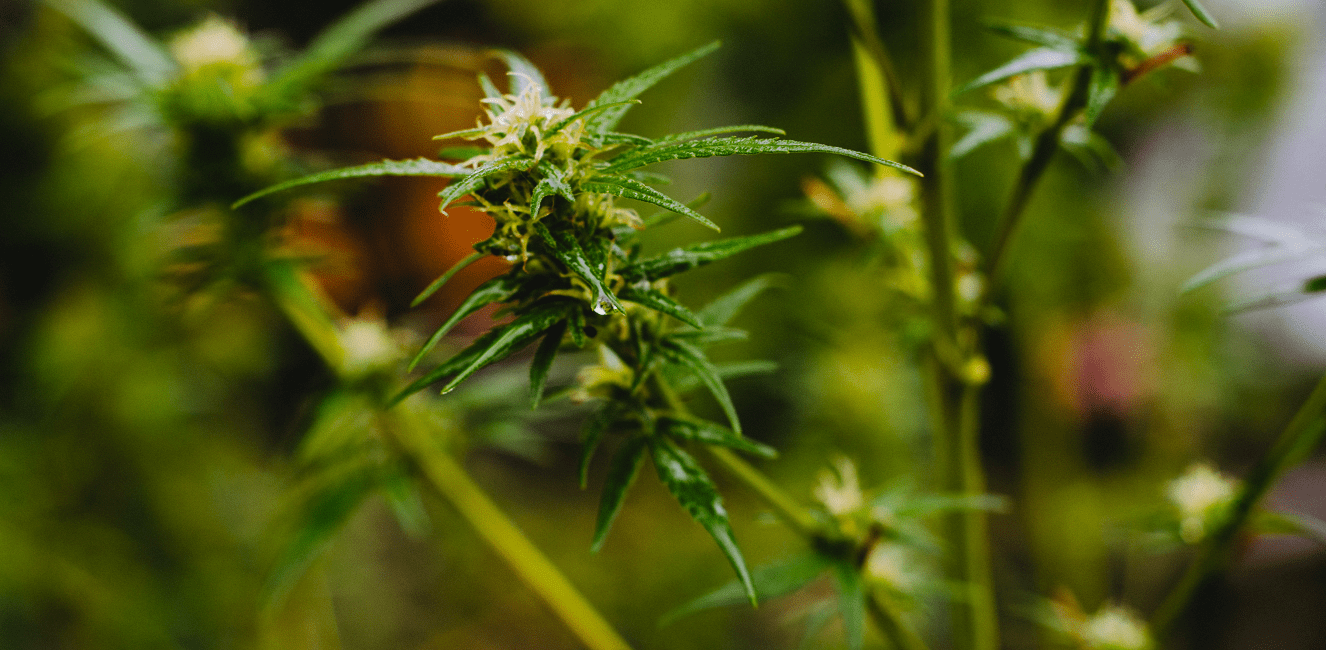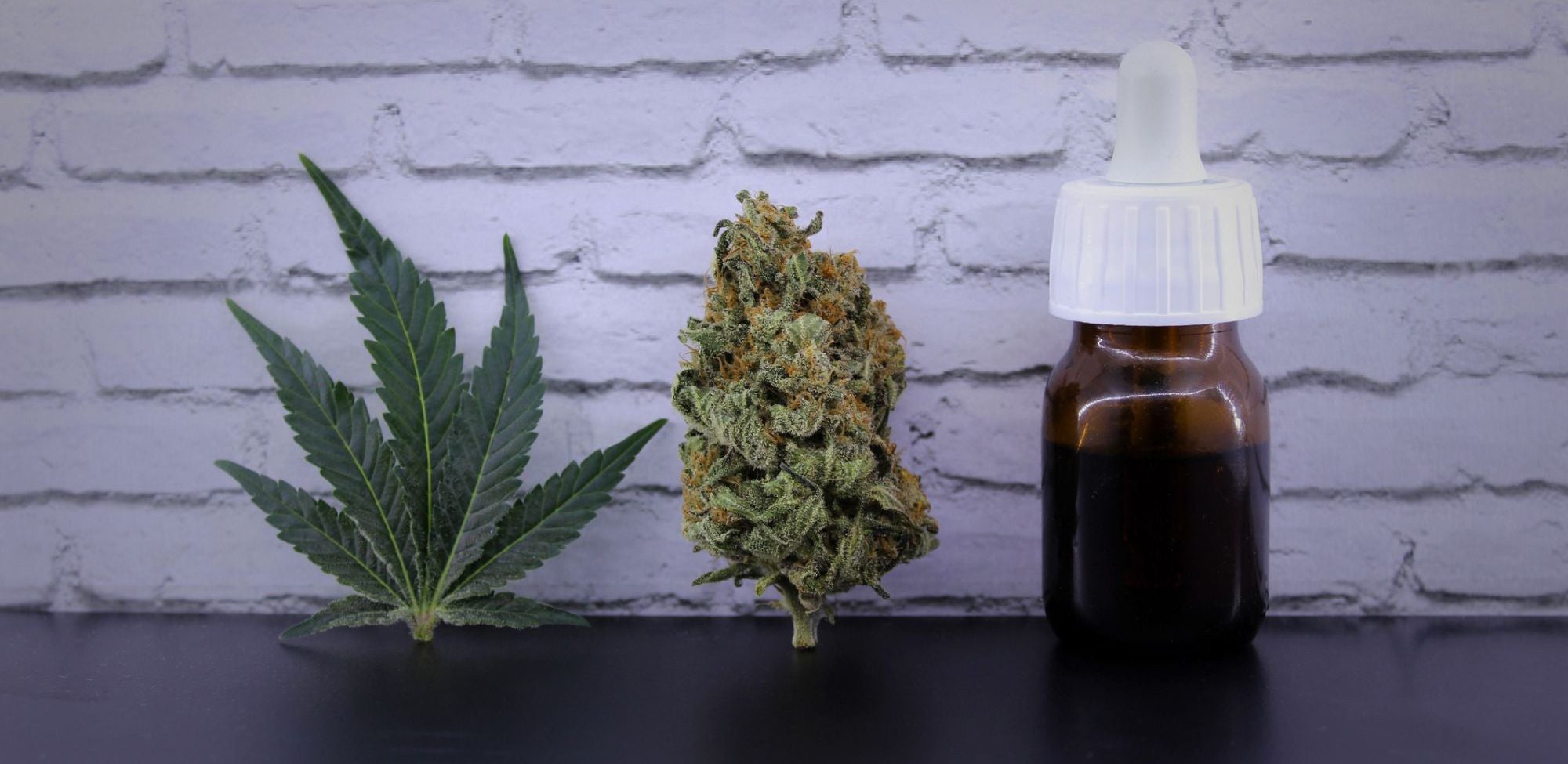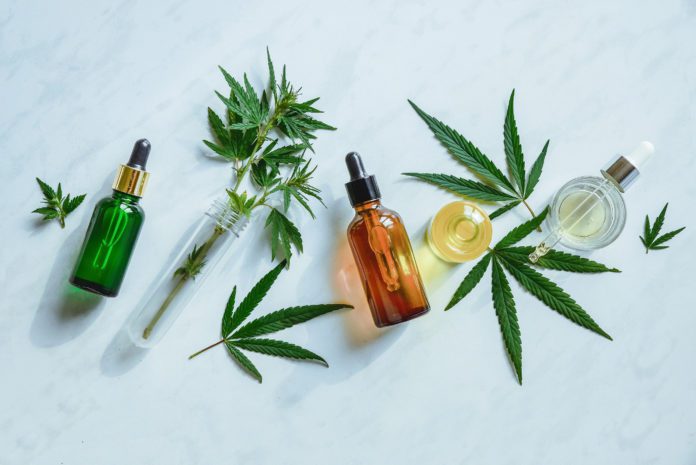There are two main types of cannabis plants: Cannabis sativa and Cannabis indica. The chemical compound cannabidiol (CBD) is found in the cannabis sativa plant. This natural compound may be beneficial for a wide variety of symptoms and disorders, and it is currently being studied.
CBD interacts with your endocannabinoid system’s neuroreceptors when applied topically, inhaled as smoke, or edible consumption, sending signals between your cells to help regulate your movement, brain function, mood, pain, homeostasis, metabolism and immune system.
Regardless of the subspecies, the cannabis plant contains over 120 chemical compounds (known as cannabinoids), including CBD (cannabidiol) and THC (tetrahydrocannabinol).
On the other hand, CBD users can enjoy the health benefits of CBD without experiencing the high associated with marijuana because CBD is separate from THC, the psychoactive compound found in cannabis.

CBD oil has become increasingly popular in recent years as a result of its alleged calming properties. From simple oil tinctures to CBD-infused potato chips, it’s now available in a variety of products, including innovative options like 1500mg CBD Oil in Cola. This unique formulation combines the benefits of CBD with the refreshing taste of cola, providing consumers with a convenient and enjoyable way to experience its effects.
Types of CBD
There are more than a few types of CBD products:
- Full-spectrum CBD: This type of CBD has all the components of the cannabis plant, including THC. Full-spectrum products contain less than 0.3% THC, but it’s important to know that THC is present in full-spectrum products.
- Broad-spectrum CBD: With the exception of THC, this type of CBD contains all the active ingredients found in the cannabis plant.
- CBD Isolate: This is the purest form of CBD available, containing no other cannabinoid compounds from the cannabis plant.
- CBD Vape Juice: These flavourful liquids are one of the most convenient ways to enjoy the mild, calming energy and health benefits of CBD.
Full-spectrum CBD oil or CBD isolates are the most common forms of CBD oil. While CBD isolates contain only that compound, full-spectrum oils contain a wide range of compounds found naturally in the cannabis plant, such as proteins, flavonoids, terpenes, and chlorophyll. Full-spectrum oils are more potent than isolates because they contain a wider range of compounds.
The Entourage Effect
You might be wondering which type of CBD is best for you. There is some evidence to suggest that the compounds found in the cannabis plant, which include cannabinoids (such as CBD and THC) as well as other organic compounds such as terpenes and flavonoids, are more effective when taken together. This is known as the “entourage effect.”
Choosing a full-spectrum CBD product is the best option if you want to reap the full benefits of the entourage effect but don’t mind ingesting a small amount of THC.
If you want to eliminate any possibility of experiencing an intoxicating effect, choose a product that contains a broad spectrum of active ingredients or an isolate. These forms of CBD, on the other hand, may not provide you with the full range of benefits.

What Is CBD Oil Used For?
The field of CBD research is also expanding. Cannabis has been used for medicinal purposes for thousands of years and continues to be used today.
There are many health benefits claimed by CBD oil proponents, including the following:
- Anxiety
- Depression
- Addiction
- Chronic pain
- Relieves insomnia and improves sleep
- Reduces inflammation
- Reduces muscle spasms
- Epilepsy
- Acne and Psoriasis
- Anorexia
- Drug addiction and withdrawal
- Glaucoma
- High blood pressure
- Muscle spasms
- Parkinson’s disease
According to recent studies, CBD oil has a number of health benefits that have been scientifically proven. Here are just a few examples of what the current evidence indicates.
Anxiety and Depression
Anxiety and depression are the two most common mental health disorders in the world, according to the World Health Organization.
There has been early evidence that CBD and other cannabinoid-based therapies have the potential to help with a wide range of conditions and symptoms such as anxiety and depression.
According to one Brazilian study, a 600 mg dose of pure CBD, significantly reduced anxiety associated with public speaking in people suffering from social anxiety disorder (SAD).
In the same vein, a 2019 Japanese study found that CBD oil reduced anxiety in teenagers with SAD, whereas a placebo had no effect on anxiety levels.
Experts believe that CBD works by interfering with the ECS, as well as receptors for serotonin and the calming neurotransmitter GABA, to produce its antidepressant and anxiety-relieving effects.
Brain Health
Terpenes and flavonoids, for example, are phytochemicals that have been shown to be beneficial to the brain. Several flavonoids and terpenes have been found to have neuroprotective and anti-inflammatory properties, according to research published in 2019. It has been proposed by the researchers that these compounds could enhance CBD’s therapeutic potential in some cases.
Sleep
Do you ever find yourself up late at night watching puppy videos? CBD could be useful as a sleep aid.
To determine whether CBD can help with sleep, you must first understand what causes insomnia. Sleep can be disrupted for a variety of reasons, including mental health disorders such as anxiety, PTSD, and depression.
CBD was the subject of a study published in 2019 that investigated whether it could improve sleep and/or reduce anxiety.
Epilepsy
If there is one benefit of CBD that is so strongly backed up by evidence that clinicians recommend it, it is the relief of treatment-resistant epilepsy.
In June 2018, the FDA approved Epidiolex, a CBD oral solution used for the treatment of certain rare forms of epilepsy in children, including Dravet syndrome and Lennox-Gastaut syndrome.
Pain and Inflammation
It has been documented that marijuana has been used to treat pain as far back as 2900 B.C.
Scientists have recently discovered that certain components of marijuana, such as CBD, are responsible for its pain-relieving properties by influencing the activity of the endocannabinoid receptors, decreasing inflammation, and interacting with neurotransmitters.
CBD has a long list of health advantages, and the list is growing.
How to use CBD
The best way to consume CBD varies depending on the product you choose.
- Oils: CBD oils are administered sublingually using a dropper. Check the dosage instructions and make sure you’re holding the oil beneath your tongue for the correct amount of time. CBD oils can be mixed into smoothies and other foods.
- Edibles: In this method, CBD is consumed in the form of a gummy or other edible. Make sure you’re taking the right dose by following the manufacturer’s instructions.
- Topicals: These CBD products are used to alleviate skin, muscle, and joint pain, among other symptoms. Start with a small amount and gradually increase the amount as needed.
Because potency varies from product to product, it’s critical to figure out the proper dosage. There are general dosing guidelines provided by the manufacturers, but individual factors like body weight and chemistry must be taken into consideration.
Starting low and going slow is the best strategy in general.
Before trying CBD, talk to your doctor, especially if you’re on any medications. Some OTC medications, dietary supplements, and prescription medications may interact with CBD.
If you’re using a topical CBD product, begin with a test patch to ensure you don’t have an adverse reaction before applying it more widely.
